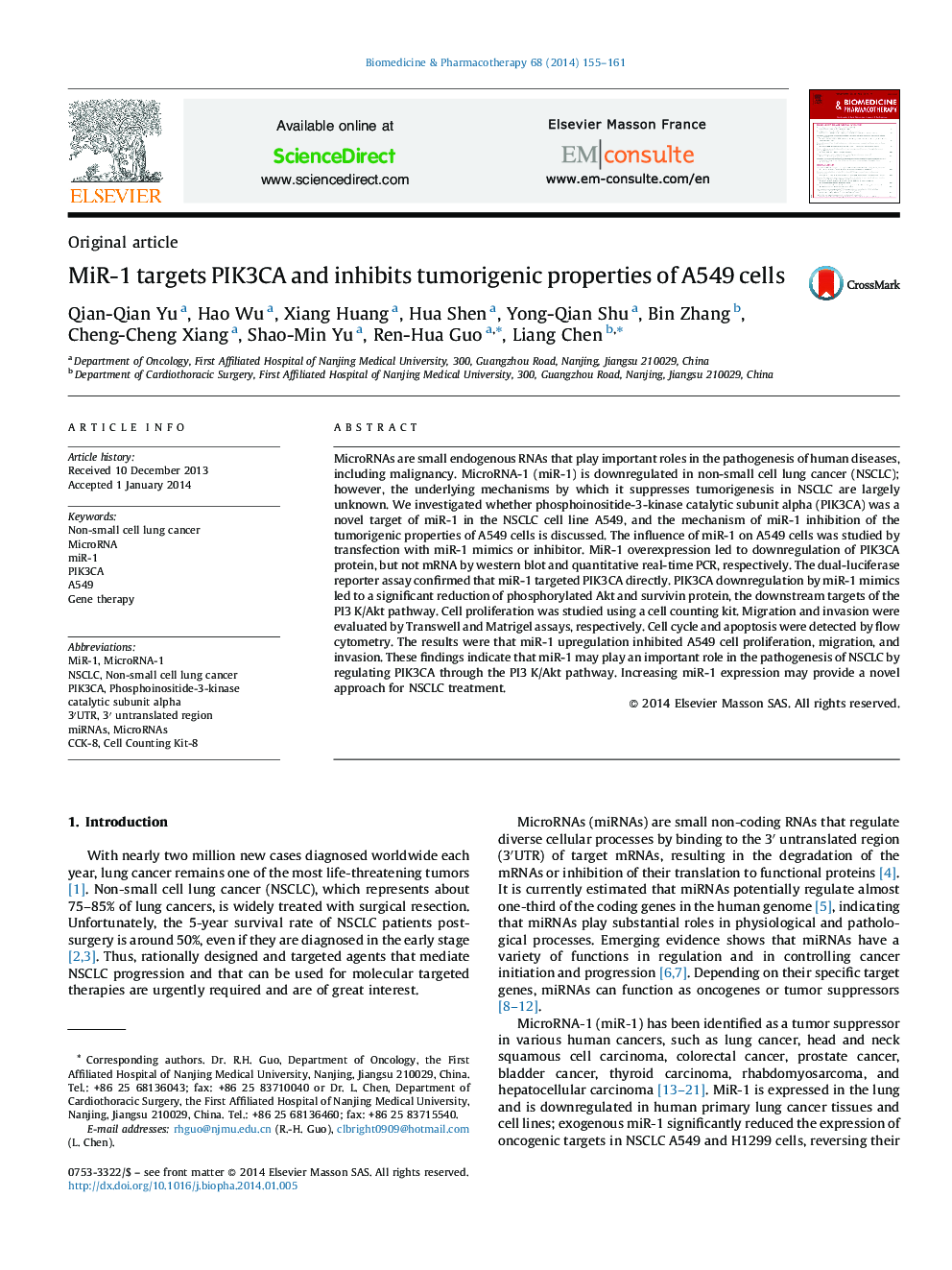| Article ID | Journal | Published Year | Pages | File Type |
|---|---|---|---|---|
| 2525041 | Biomedicine & Pharmacotherapy | 2014 | 7 Pages |
MicroRNAs are small endogenous RNAs that play important roles in the pathogenesis of human diseases, including malignancy. MicroRNA-1 (miR-1) is downregulated in non-small cell lung cancer (NSCLC); however, the underlying mechanisms by which it suppresses tumorigenesis in NSCLC are largely unknown. We investigated whether phosphoinositide-3-kinase catalytic subunit alpha (PIK3CA) was a novel target of miR-1 in the NSCLC cell line A549, and the mechanism of miR-1 inhibition of the tumorigenic properties of A549 cells is discussed. The influence of miR-1 on A549 cells was studied by transfection with miR-1 mimics or inhibitor. MiR-1 overexpression led to downregulation of PIK3CA protein, but not mRNA by western blot and quantitative real-time PCR, respectively. The dual-luciferase reporter assay confirmed that miR-1 targeted PIK3CA directly. PIK3CA downregulation by miR-1 mimics led to a significant reduction of phosphorylated Akt and survivin protein, the downstream targets of the PI3 K/Akt pathway. Cell proliferation was studied using a cell counting kit. Migration and invasion were evaluated by Transwell and Matrigel assays, respectively. Cell cycle and apoptosis were detected by flow cytometry. The results were that miR-1 upregulation inhibited A549 cell proliferation, migration, and invasion. These findings indicate that miR-1 may play an important role in the pathogenesis of NSCLC by regulating PIK3CA through the PI3 K/Akt pathway. Increasing miR-1 expression may provide a novel approach for NSCLC treatment.
